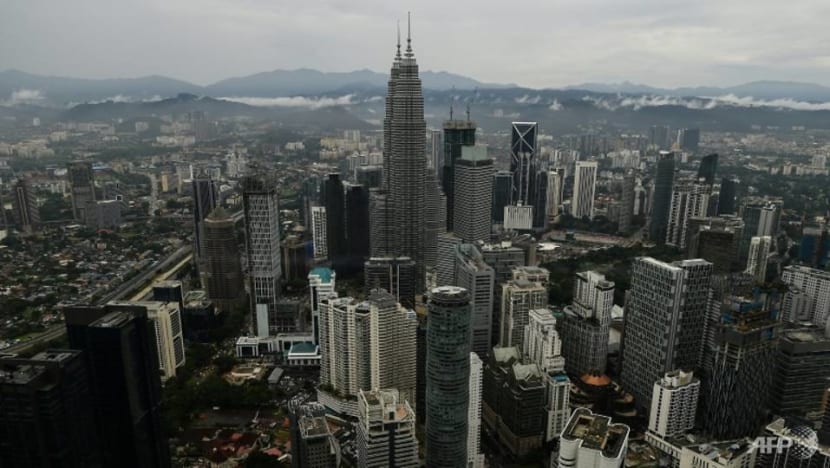Malaysia's hung parliament sees markets slip, but unlikely to affect growth trajectory: Observers
Despite the political uncertainties, Malaysia's economic fundamentals still remain quite robust heading into the next year, said analysts.

SINGAPORE: Malaysia’s hung parliament may have shaken markets, but the country’s longer-term growth outlook is unlikely to be affected by the ongoing horse-trading between the political coalitions, said observers.
Malaysian stocks and the ringgit slipped on Monday (Nov 21), as investors weighed the prospect of more political instability.
This comes after last Saturday’s general election produced the country’s first-ever hung parliament, where no single political coalition managed to obtain a simple majority of seats to form a federal government.
On the election stalemate, Dr Sailesh Kumar Jha, group chief economist and head of financial market research at RHB Group, said: “No matter which form of government eventually materialises, it is not going to really impact the trajectory of growth.”
Despite the political uncertainties, Malaysia's economic fundamentals still remain quite robust heading into the next year.
RHB group is maintaining its gross domestic product (GDP) growth forecast at 7 per cent this year, followed by about 4.5 per cent next year. It is expecting the US dollar to trade with the Malaysian ringgit at a range of 4.6 to 4.7 in the fourth quarter, followed by 4.7 to 4.8 in the first half of 2023.
Dr Sailesh said: “The key message is that whatever form of government does take over, it will be business and investor friendly.”
The deadline has been extended for the coalitions to present their numbers to form the government and propose their prime minister candidates to the palace. They will now have until 2pm on Tuesday to do so.
Results of the Nov 19 polls showed that Pakatan Harapan (PH), led by opposition leader Anwar Ibrahim, and Perikatan Nasional (PN), headed by former Prime Minister Muhyiddin Yassin, are both in pole position to form the next government, winning 81 and 73 seats respectively.
Politicians have been highlighting the need to tackle key issues, like the surging inflation, rising food prices, and the falling ringgit, during their campaign rounds.
Economist Khor Yu Leng, Southeast Asia research director at Segi Enam Advisors, said: “So we should expect some similarities on that ground clearly.”
UNCERTAINTIES GOING FORWARD
But Ms Khor shared her concerns on how the new government will ensure sustainable financing for big ticket items going forward.
“We do see general caution among economists and analysts that with this kind of political situation, there will be a lot of populist policies,” she said.
“We have seen in other countries when they do unsustainable things, there is adjustment and discussion to be made. Otherwise, markets and even currency may be a bit spooked.”
The outcome of the election has also created uncertainties over Budget 2023, which is expected to be tabled again before the end of this year.
The timeline for this is unclear following the election deadlock, and would depend on the timing of Cabinet formation, said analysts.
Ms Khor said: “The interesting thing is the budget actually was prepared by Barisan Nasional, which really didn't do very well in the polls. So it will need to be reworked by whoever is in.”
The national budget tabled by finance minister Tengku Zafrul Tengku Abdul Aziz on Oct 7, unveiled the government’s spending plan involving RM372.3 billion (US$81.4 billion) for 2023.
And with Mr Zafrul now out of the equation after losing in Kuala Selangor, experts are unsure who will take his place.
Dr Sailesh said: “It's all up in the air right now as far as we can see.”
A DIVIDED MALAYSIA
Meanwhile, some observers noted that heavy polarisation could be a likely issue moving ahead.
The recent polls saw the conservative Parti Islam Se-Malaysia (PAS) and the progressive Democratic Action Party (DAP), two parties on the opposite ends of the political spectrum, securing the most number of seats.
Ms Khor said: “If we look at the underlying parties and this is below the coalition level… if you look at the underlying components of it, we do have the Islamic party as the biggest (winning) political party right now, and the second one being the DAP, which is essentially Chinese ethnic-dominated.”
This points to a “very heavy polarisation”, she added. “I think the market will be looking at this with a bit of caution.
“And there are concerns that this might make coalition-forming a bit difficult because the two biggest parties are really seen as at the extremes of the spectrum.”










.png?itok=imeZiA5w)






